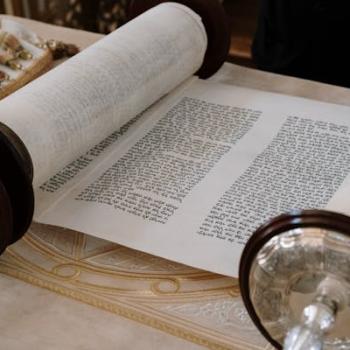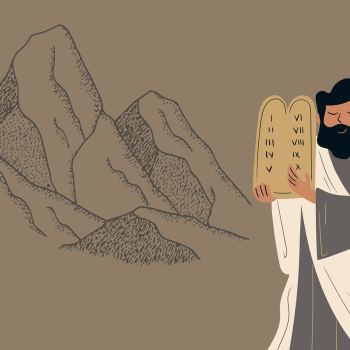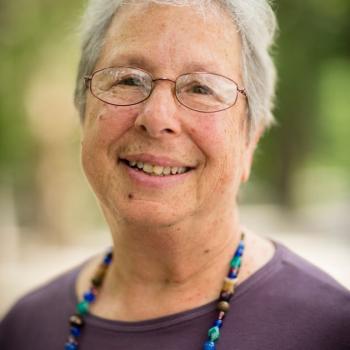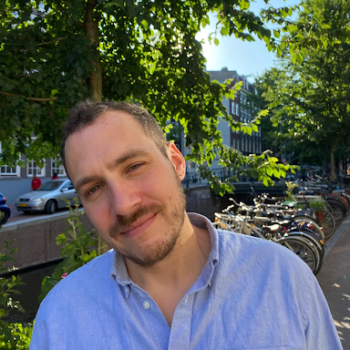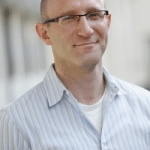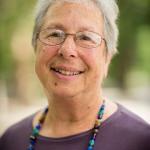By Rabbi Daniel Klein ’10
Parashat Maatot-Mas’ei Numbers 30:2-36:13
As we conclude the Book of Numbers this week, the wanderings and journeys of the people of Israel have come to an end in the Torah. They have arrived at the steppes of Moab, the threshold of the Promised Land, and will remain there throughout the Book of Deuteronomy until they enter the land as chronicled in the Book of Joshua. The Torah turns now to the final stages of preparation to go into the land. The second of this week’s double parashah, Mas’ei, begins that process with God instructing Moshe to recount the trek through the wilderness. It is a terse, 49 verse version, chronicling where they stopped along the way. These two verses give one the flavor of the story:
The Israelites set out from Rameses and encamped at Succoth.
They set out from Succoth and encamped at Etham, which is on the edge of the wilderness.
-Numbers 33:5-6
The purpose of this version of history, the laundry list of places visited with occasional sparse details of events, is not obvious. A midrash offers insight into this passage by way of an analogy. It suggests that the Israelites are comparable to the ill child of a king who is taken to a place of healing. When the child’s health is restored, the king recounts for the child all the stops along the way towards healing: “Here we slept, here we cooled ourselves, here you had a headache.” (Bamidbar Rabbah 23:3). For this reason, says the midrash, God tells Moshe to enumerate all the places of the journey.
According to this midrash, the retelling of the story communicates that a transformation has occurred. Having come out of Egypt, a ragtag group of former slaves, they are now ready to enter the Promised Land. This is no small accomplishment. It was only a few parashiyot prior, though 40 years in the past, that their parents had proven incapable of going into the Land of Israel and been sentenced to die in the wilderness. That these former slaves were able to raise children who could now stand on the threshold of entering the land is remarkable. The recounting of wanderings, in the midrash’s interpretation, is meant to depict for the people their spiritual transformation into more whole, capable beings.
But there is an element of the midrash that strikes me as revealing a more complicated picture of transformation. In this analogy of a healing journey, the midrash strikingly concludes its teaching by interpreting each stop as a place where the people “angered” God. In the context of the Book of Numbers, such a characterization seems fitting. The book is filled with incidents of the people losing faith in God, rebelling against Moshe, and angering God. However, the midrash’s negative generalization of all the stops is surprising, given its much more neutral and even positive description of each stop as places the people slept, cooled themselves, or had a headache.
What might this summary statement about the stops of the journey suggest about the process of healing and the extent of the people’s healing as they prepare to enter the Promised Land?
Earlier in the Book of Numbers, we learn that the Israelites knew to camp and remain where they were when the cloud of God hovered over them. When the cloud lifted, that is when they would break camp and move on. (Numbers 9:15-19) According to Rabbi Shalom Noach Berezovsky in a comment on this passage in Netivot Shalom, experiencing God as a cloud is, paradoxically, the experience of God’s hiddenness. It is the feeling of God’s absence, of darkness, of doubt. Yet, says the Netivot Shalom, even in those times, “a person still has a purpose, and sacred service” to engage in. One should not try to get away from the darkness because, as the Netivot Shalom says, quoting Kohelet 2:4, “A fool walks in darkness.” Running away will only increase the likelihood of stumbling and falling—it is dark after all. Instead, one must remain where they are, seeking and serving God in the darkness in whatever way they can.
In this interpretation, doubt is understood, unexpectedly, as also a sign of God’s presence. It is God’s cloud, and we know God is with us because of the doubt, even if we also feel distant. The spiritual practice and service is to remain present in the darkness and doubt, to camp there like the Israelites in the wilderness, and serve God from the cloud. For this reason, says the Netivot Shalom, God gives the Torah at Sinai in a “thick cloud,” (Exodus 19:9) to show that in times of “intense darkness … [God] still speaks with you and is close to you.” We are still able to be close to God and, “to do God’s will.”
Reading the midrash through the lens of the Netivot Shalom, we can understand each stop the Israelites made in the wilderness as they progressed in their healing process as experiences of encountering and wrestling with doubt. We can understand the midrash’s description of these stops as places they “angered” God, maybe because they were learning to be with doubt and darkness as opposed to running away from it. In this conception, the healing process the people were engaged in was a maturation in relationship to doubt and the experience of distance from God. They had to individuate, coming to experience their felt lack of proximity not as antithetical to a committed relationship, but simply part of a mature, interdependent relationship. The experience of God’s presence being hidden and the uncertainty it provokes in one’s relationship with God was simply in the nature of relationship, an ever-recurring experience that we have to keep encountering and working through.
In this time of deep anxiety and uncertainty, a time in which God’s presence can feel hidden, I find this teaching important, comforting, and uplifting. Don’t run away. Don’t rush to be somewhere else. Such behavior, though understandable, will likely only cause more problems. Have faith in what we have learned from our experience of traversing life’s difficult moments, our many encounters like this before. The Divine presence is here, in the hiddenness. There is actually light in the darkness, and the cloud will lift eventually. In the meantime, be patient. Be brave. Have hope. Serve what is most sacred, reach for a better world, where you are.
Rabbi Daniel Klein is Dean of the Rabbinical School of Hebrew College in Newton, MA. He was ordained by Hebrew College in 2010 and previously served as Dean of Students and Director of Admissions & Student Life.
Learn more about Hebrew College’s rabbinical program at Ta Sh’ma (Come & Hear), our prospective student Open Houses (in-person November 18 & virtual December December 8).




